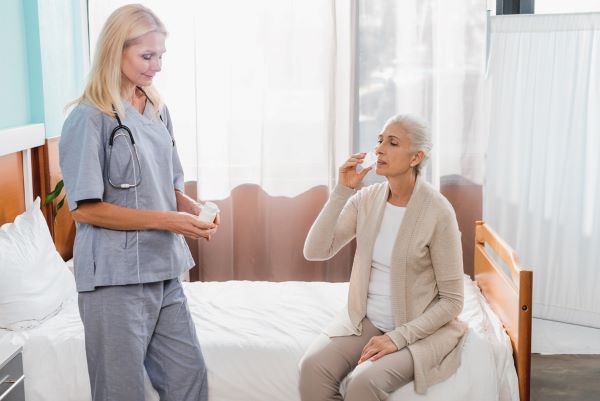With age, bodies change and can no longer process medications as they used to. This can make it difficult to manage medications, especially if you are taking multiple prescriptions. Here are some tips for medication management for the elderly.
It is important to keep track of all medications that are being taken, including over-the-counter drugs and supplements. A medication list can help keep track of everything. Be sure to update the list as new medications are added or discontinued.
It is also important to keep track of the dosing information for each medication. This includes how much to take and how often. Dosing information may need to be adjusted as our bodies change with age. Again, a medication list can help keep this information organized.
Be sure to talk to your healthcare provider about any concerns you have with your medications. They can help you adjust to take the right dosage and avoid any potential reactions.
Set Reminders
It can be difficult for elderly loved ones to keep track of their medications. They may have many different prescriptions and must take them at different times throughout the day. It is crucial to ensure they take their medications as prescribed to maintain their health.
You can do a few things to help remind your loved ones to take their medications. You can set alarms on your phone or use a pill box with compartments for each time of day. You can also put their medications where they will see them easily, such as on the kitchen counter or the coffee pot.
You should also talk to their doctor about any concerns you have about their medication regimen. The doctor can help you devise a plan that will work best for your loved one and ensure they take the right doses for each medication.
Organize Medications
As you grow older, it becomes more difficult managing your medication. You may be taking more medications than ever before, and it can be hard to remember which ones you need to take and when. It is important to stay organized with your medications to ensure you take them correctly and do not run out.
One way to stay organized is to list all the medications your loved one is taking. Include the name of the medication, the dosage, how often it should be taken, and other important information. This will help you track what needs to be taken and when. You can also include the expiration dates of the medications on this list so that you know when they need to be replaced.
Review Medications Regularly
It’s important to review your loved one’s medications regularly with their doctor. This will ensure that the medications are still effective and necessary and that any side effects are monitored. The goal is to ensure the medication regimen is as safe and effective as possible.
Be sure to ask the doctor if there have been any changes to the recommended dosages or frequency of administration, as well as any new warnings or precautions. Also, ask about any new drugs that may be appropriate for your loved one’s condition.
Conclusion
You must talk with your loved one about their medications. They should be aware of their medications and why they are taking them. This will help them to be more compliant with taking their medications as prescribed. Remember that the doctor is the expert on medications and their interactions with each other. If you have any questions, ask the doctor or pharmacist. Finally, if you notice any changes in their compliance or side effects, you can talk to their doctor to adjust the prescription accordingly.
Related Posts: